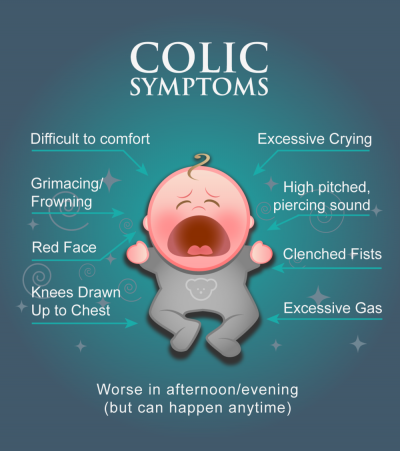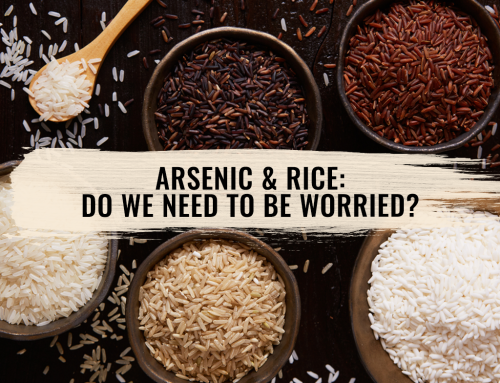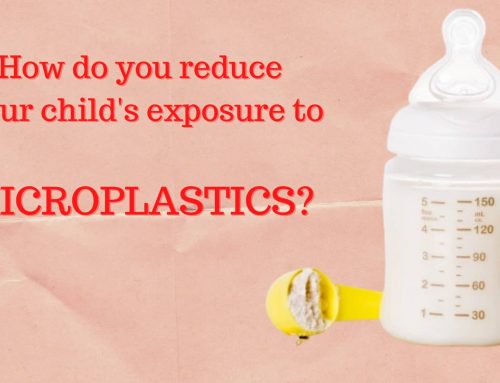It is 2 a.m, and your heart starts beating faster. You feel agitated, restless as though you can sense something ‘BIG’ is about to happen. Just on cue, your baby starts screaming her head off. No matter how you try to soothe her, she would not stop crying. You tried giving milk, changing diapers, carrying her, petting her – nothing worked. When she eventually quieten down, it was already 5 a.m. You go back to sleep only to shudder about re-living the whole scene again the next morning.
Sounds familiar? Unfortunately, this was my personal experience dealing with my firstborn 8 years ago. It almost brought me on the verge of depression.
What is infant colic?
Crying or fussing in babies is part and parcel of them growing up. However, colic refers to babies who cry excessively for no apparent reasons for more than 3 hours a day on more than 3 times a week in the first 3 months of life. Parents often seek advice early after spending sleepless nights trying to soothe their babies but failing to do so. Interestingly, colic tends to occur in the evening hours.
What is the cause of infant colic?
Despite years of research, the cause of colic remains unclear. Some theories include excessive wind in the bowels, abnormal bowel movement with a heightened perception of pain, but none is proven. Studies have shown that the bowels of colicky babies have higher numbers of harmful bacteria (Escherichia spp) and lower amounts of good bacteria aka probiotics (Lactobacillus spp).
What could be the other causes of excessive crying?
Before putting the blame solely on infant colic, a parent should first check for these culprits:
✔️Hunger
A hungry baby is an angry baby. Most babies below the age of 3 months tend to feed once in every 2 to 4 hours. Sometimes, their demand may increase especially during growth spurts. Try feeding your baby to eliminate hunger as a cause of crying.
✔️Pain
Is your baby feeling too hot or cold? Check for other sources of discomfort; for example, tight diapers or clothing. Ensure that there is no hair wrapped around a finger or other body parts (hair tourniquet).
✔️Fatigue or overstimulation
In both cases, the baby finds it hard to sleep hence starts crying excessively. Try swaddling the baby loosely or putting baby to sleep in a stroller or a car ride.
How do you manage colic?
1. Good support system for parents
Were you surprised with the first and most crucial management of colic? Infant colic is not life-threatening, but it causes a lot of emotional burden to the parents such as feelings of guilt, tiredness, anxiety, helplessness etc. Hence, it is not surprising that infant colic is associated with a higher incidence of maternal depression, child abuse and cessation of breastfeeding. If you are feeling overwhelmed and tired, TAKE A BREAK! Get a temporary caretaker or a family member to substitute for a while. Do not feel guilty for ‘abandoning’ your child.
2. Probiotics
Lactobacillus reuteri, a probiotic has shown to improve infant colic; however, the best results were seen in breastfed babies rather than formula-fed babies.
3. Hypoallergenic formula
Allergy to cow’s milk protein has been linked to infant colic but only make up 5% of colic cases. A trial of hypoallergenic formula can be given for two weeks to see if the colic symptoms improve.
4. Food elimination for breastfeeding mothers
Breastfed babies can have sensitivity or allergy towards food from their mother’s diet. The solution is for breastfeeding mothers to avoid consuming high-risk food like dairy products, eggs, nuts and wheat.
5. Others
Infant colic drops and tummy massages can be tried. Still, no studies have yet to prove the effectiveness of both in managing infant colic.
➡️ If you suspect your child to have colic, the first step is to get your child examined by a doctor. Many illnesses can mimic ‘colic’ like cow’s milk protein allergy, reflux and lactose intolerance. Rest assured that most cases of colic resolve spontaneously after the first three or four months of life.
References:
1. Infantile colic Aust Prescr. 2018 August; 41(4): 105-110
2. Treatments for infantile colic – Journal of Pediatric Gastroenterology and Nutrition: December 2013 – Volume 57 – Issue p S27-S30
3. Infantile colic: Clinical features and diagnosis by Teri Lee Turner et all UpToDate
Related articles:
https://drjoannchildspecialist.com/risks-of-using-baby-powder/
https://drjoannchildspecialist.com/tips-to-overcome-constipation/
INTERESTED IN PARENTING ARTICLES?
We have the right articles just for you.
“There is no such thing as a perfect parent. So just be a real one.” – Sue Atkins







